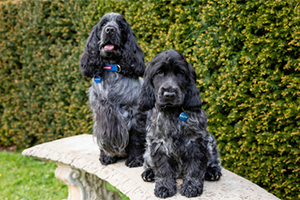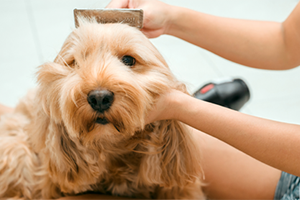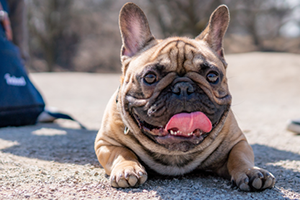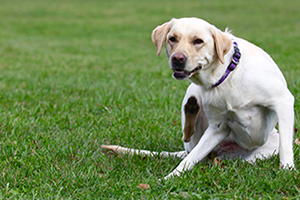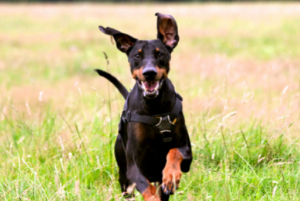
An enthusiastic extrovert with plenty of personality
Vital stats
Swipe to view more
| Size: | Small |
| Coat: | Medium and wiry with a thick undercoat, requires grooming at least twice a week |
| Exercise | Around 1 hour a day for adult dogs |
| Life span: | 12+ years |
| Breed group: | Utility |
| Temperament: | Intelligent, obedient, friendly |
Miniature Schnauzer temperament & personality

- As an out-and-out extrovert, Miniature Schnauzer needs plenty of attention.
- This fun-loving breed is happy to meet new people but can take a while to warm up to other dogs, so early socialisation is really beneficial.
- Miniature Schnauzers are highly intelligent and usually easy to train, but their stubborn streak requires a firm and patient hand.
- Due to their playful nature, these breeds make great family pets and usually get on well with children (but always keep dogs under close supervision around young children).
- It’s important to remember that Miniature Schnauzers have a high prey drive and aren’t well suited to households with cats or smaller mammals and birds.
Miniature Schnauzer training & exercise

Training tips
- Due to their high intelligence, Miniature Schnauzers love to learn tricks and will relish the attention from you.
- Miniature Schnauzers tend to be strong-willed and are known to have “selective hearing” when it comes to obeying commands, so it’s important to introduce recall training early on.
- Their strong personalities mean that Miniature Schnauzers can also lose interest quickly in lessons, especially if you don’t establish yourself as the pack leader.
Keeping them happy
- As a “people person” your Miniature Schnauzer will be happiest in the heart of a busy, active household. This means they won’t tolerate being left alone very well.
- Miniature Schnauzers are incredibly loyal and will normally choose a favourite amongst the family.
Exercise
- With a strong terrier streak, Miniature Schnauzers need more exercise than their small size might suggest – around one hour a day should suffice.
- Miniature Schnauzers also love to roam so should have plenty of space to explore in a secure, well fenced garden.
- As a lively and playful breed, Miniature Schnauzers also need plenty of mental stimulation, so earmark plenty of time for games as well as walks.
Game ideas
- Natural born diggers, Miniature Schnauzers will love finding buried treasure, in the form of their favourite toy, in a sandbox or on the beach.
- These versatile dogs also excel at obedience and agility training. Earthdog trials, in which dogs are judged on their underground hunting, seeking and retrieving skills, are a perfect activity for Miniature Schnauzers to channel their penchant for digging!
Common Miniature Schnauzer health conditions

Miniature Schnauzer grooming

Miniature Schnauzers’ double coat is both low maintenance and low-shedding, which may make them more suitable for allergy sufferers.
- Miniature Schnauzers’ main coat doesn’t need too much maintenance, brushing once a week will suffice. However, their wiry “beard” and ears will need more regular attention to prevent matting.
- Some owners choose to wash their Miniature Schnauzer’s beard after they eat to keep them looking spick and span, but this isn’t always necessary.
- The Miniature Schnauzer needs regular grooming – at least twice a week. The dog’s ‘beard’ should also be combed every day to avoid matting.
Miniature Schnauzer nutrition

Miniature Schnauzers love their food, but don’t be taken in by their puppy-dog eyes as they can quickly put on weight if over-indulged.
- Keep an eye on portion sizes to maintain a healthy weight.
- Miniature Schnauzers can be more prone to diabetes than other breeds so their diet should be closely monitored by you and your vet.
- Make sure your Schnauzer also has access to plenty of water as this breed can also be prone to urinary conditions.
What to know before you buy or rehome a Miniature Schnauzer

Considering welcoming a fun and feisty Miniature Schnauzer into your home? Before you buy or adopt one, here are a few important things to remember.
- Miniature Schnauzers are not the most dog-friendly dogs and can be very vocal, although they are rarely aggressive.
- This intelligent breed loves to learn tricks but needs a firm and patient owner when it comes to training.
- Miniature Schnauzers tend to get on well in a busy, family household.
- Choose a licensed and reputable Miniature Schnauzer breeder if you’re buying a puppy. ‘Lucy’s Law’ dictates that new puppies or kittens must be bought directly from a breeder or adopted from rescue. Third party sellers are illegal.
- Like all dogs, Miniature Schnauzers can suffer from a range of health conditions so always look carefully at the veterinary cover provided when shopping around for pet insurance as not all policies are the same.
Miniature Schnauzer frequently asked questions
Discover some of the most popular dog breeds
Miniature Schnauzer insurance considerations
We always offer these things as standard:
Physiotherapy & pet therapies
Along with physiotherapy, which is covered within the Vet Bills benefit, we also cover Pet Therapies like herbal medicine, homeopathy and acupuncture. You can also claim for hydrotherapy, up to £500 per illness/injury in dogs and cats (no additional limit for rabbits).
Petplan is a trading name of Pet Plan Limited (Registered in England No. 1282939) and Allianz Insurance plc (Registered in England No. 84638), Registered office: 57 Ladymead, Guildford, Surrey GU1 1DB.
Pet Plan Limited is authorised and regulated by the Financial Conduct Authority. Financial Services Register No. 311969. Allianz Insurance plc is authorised by the Prudential Regulation Authority and regulated by the Financial Conduct Authority and the Prudential Regulation Authority. Financial Services Register No. 121849. Pet Plan Limited is a subsidiary of Allianz Insurance plc.







































